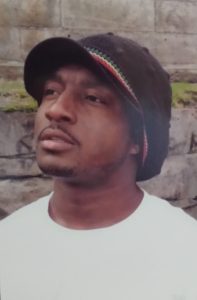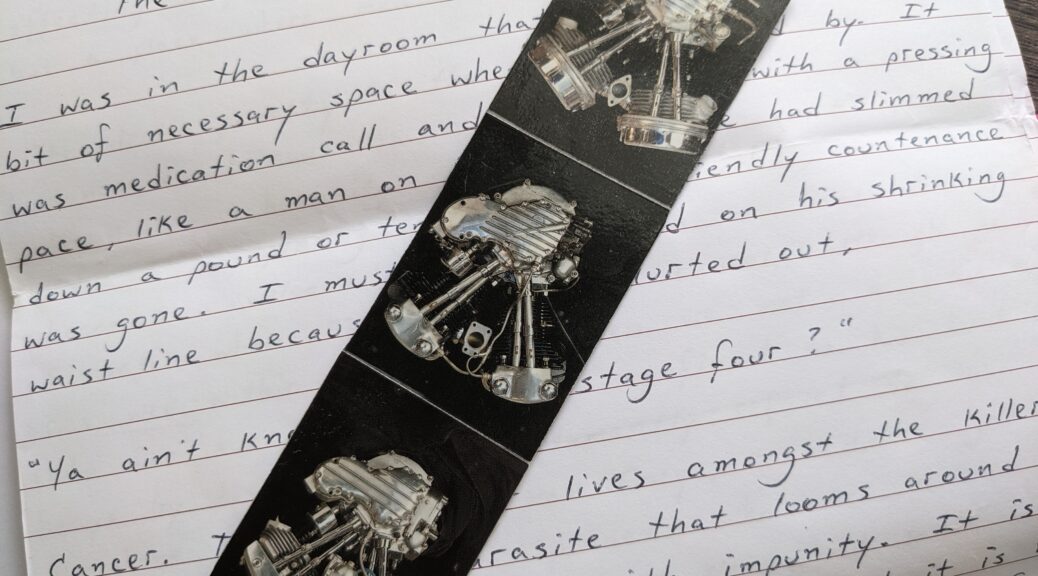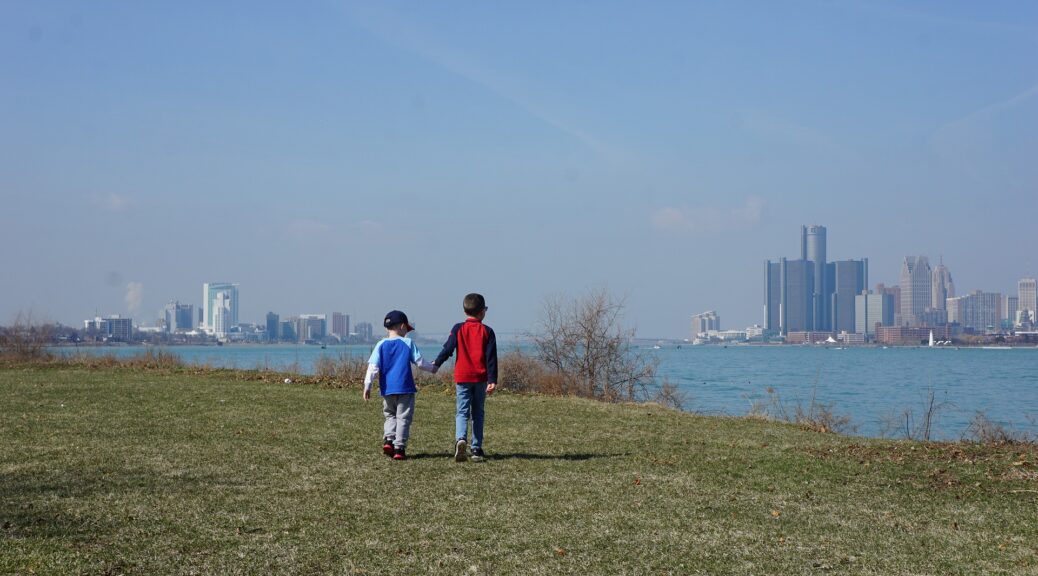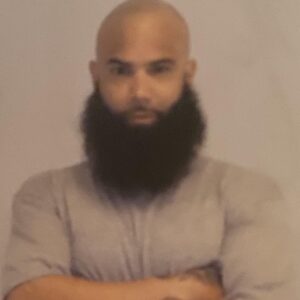I was in the dayroom that day, taking up a tiny bit of necessary space when Moose walked by. It was medication call, and he walked with a pressing pace, a man on a mission. He had slimmed down a pound or ten, and his friendly countenance was gone. I must’ve commented on his shrinking waistline because someone blurted out, “Ya ain’t know Moose got stage four?”
Cancer. The killer that lives amongst the killers on Death Row. A parasite that looms around the turn of each year, slaying with impunity. It is an ominous disease, so widely suffered that it is recognized by several epithets. Stage Four. The Big C. Sick. And more infamously – The Cancer.
To some, this may be considered justice – anguish suffered in kind. But no one, not even a hardened killer, deserves the agony of a slow, wilting death. Even still, not all Death Row inmates are hardened killers. Some have slain in self-defense. Some, crimes of passion; some, drug fueled rages; and some haven’t killed at all. Still, there is no preference to a worldly killer that strikes without prejudice, affecting hospitals, schools, workplaces – even prisons; but a place where men were already slated to die?
The death penalty is the court’s swift, intolerant stance on heinousness, some actions dissolving our humanity. But when lengthy court appeals threaten to prolong executions by decades, cancer can become a welcome resolve. I was on Death Row for five months when Mr. Roper died of cancer, although he was well within its throes when we met; a frail man, surly at times and confined to his bunk most days, yet he adamantly refused to take his morphine pills. Then it was Gary, a mediocre gambler with a wishing-well for pockets who once summed up his terminal condition in poker slang, “I keep on catching the loser’s best.”
Then it was Ernie, who complained of stomach pangs and died weeks later, and J.W. who was found dead in his cell. Mr. Leroy. John. Another Gary and Eric, and some others whose names have been lost in the years past. And now it was Moose, a cheerful man who had befriended me often, that was said to have stage four cancer and likely preparing to die. An impossible task, one that I passed off as rumor – that way it was easier to dismiss.
A week later, I bumped into Moose while on the way to see a friend. We chatted briefly during which time he cracked a joke about his terminal condition. I was too caught off guard to respond. To laugh felt like I was downplaying the seriousness, yet my vacant response felt like pity; neither of which seemed appropriate for a guy who had just opened up to me about his struggles, so I thought to engage him instead. Moose was a talker, an enjoyable quality when he hosted role-playing games in the past, but that day he outdid himself. He jumped from one subject to the next, not saying much in the way of significance. It felt like he just needed someone with whom to talk. We covered sports and motorcycles, gossip and family – just thinking up random shit to say. I never made it to see that friend of mine but stayed hanging out with Moose and soaking up what could likely be one of our last talks together.
The topic of cancer came up, the word mentioned enough times to have been a person across the room, burly and menacing and marking his time to storm over and break up our bonding session for good. The more Moose let on about adjusting to his daily struggles, the more I admired his perseverance. It was a moving testament that I hoped would survive the cancer. On a whim I asked if I could interview him. I didn’t realize how insensitive it sounded until after the words left my mouth – but surprisingly enough, Moose said yes.
The next day he invited me into his room, a neatly kept area with gleaming white walls and folded sheets covering the floor. Any excess property he had accumulated over the years had been minimized to the barest essentials – a radio, cosmetics, and pictures on the wall were the only items in sight. There was an eeriness to the air that felt clustering and dark although sunlight poured into the room from the window. I wasn’t bothered by the cancer – I knew it wasn’t contagious, but death felt like something I could catch. Then Moose, ever the generous one, offered me a soda and some nabs and told me to have a seat. Suddenly, the eeriness was gone, replaced with compassion, and I remembered why I was there.
Chanton: Thanks for the soda, brother – man, but I would’ve brought something if I knew we were having a party.
Moose: Oh, naw – you keep your stuff, Chanton. My house, my treat.
Chanton: Your hospitality really isn’t all that surprising. You’ve always been a giver. In fact, I’ve still got the D-N-D handbook you gave me some years ago.
At this, Moose began to look around as though searching for something else to give away. To avoid my motives being mistaken, I dove into another subject.
Chanton: How’s that Washington football team of yours coming along?
Moose: They’re the worst. They should’ve kept Heinke in as the starter. That boy gooder than everybody think. I’ve done said if Riverboat Ron is still our head coach next year – I’m jumping ship.
We drank cola, ate knick-knacks and candy, and settled into the awkwardness of two men alone together who barely knew one another. I was nervous, but I wiped any trace of it from my face as the soda washed down the clump in my throat. There I was getting ready to delve into that man’s life while he was preparing for that very life to end. I figured I owed him every ounce of professionalism I could muster for the courtesy he was showing me.
Chanton: So, how’ve you been feeling, my man?
Moose: I’ve been doing good – ya know… except for that medication. It keeps me nauseated.
Chanton: What? The chemo?
Moose: Nah, I ain’t doing the chemo. All that’s gonna do is drag things out – ya know. I’mma let it do what it do. Let nature take its course.
Chanton: Don’t you wanna fight to live as long as you can?
Moose: What’s the use? Stage four cancer is terminal. Maybe if they’d caught it a few years ago, I might have a chance.
Chanton: How did you find out that you have cancer? Were there symptoms?
Moose: Hell, naw. I felt fine… a little tired every now and then. Funny – I was watching a story on Ron Rivera, the Washington head coach, and his recovery from cancer. So I’m fucking around and I checked my throat… and I found a damn lump.
Chanton: And your first diagnosis was stage four? Man, that’s fucked up.
Moose: Yep – stage four. They did that same shit to Ernie. And Eric, too.
Chanton: Oh, yeah, we know the State don’t got the best medical track record in early prevention. But here’s what I wanna do – let’s switch gears for a bit, Moose. Tell me a little about yourself.
Moose: Hmmm. Let me see. Well, I’m 56, and I grew up around Mount Airy.
Chanton: That’s in NC, right? I thought since you were a huge V-Tech Hokies fan that you were from around Blacksburg, VA.
Moose: Nah – I like V-Tech ‘cause their colors were the same as my high school team.
Chanton: You played football in high school?
Moose: Yep. I ran track, too, at Moss High. It’s a wonder how I graduated though, I was always the class clown.
Chanton: So what was going on with you before high school? What was your childhood like?
Moose: I dunno… great parents. My mama used to model for the clothing stores. Daddy was a salesman. He done been a bunch of other stuff too. I used to slop hogs and bale hay with him before school.
Chanton: So, your pops was a farmer?
Moose: For a while – yep. He owned a bit of land in Mount Airy. But then daddy became a preacher and everybody loved him. He never had to pay for shit.
Chanton: What? I never knew you were a preacher’s kid, Moose. Is it true what they say about all the restrictions?
Moose: Daddy was strict when he needed to be – but mama would tear our asses up too. I stole some bubble gum when I was three ‘cause she wouldn’t buy it for me. She whooped me all the way to the car.
Chanton: Spare the rod, spoil the child, huh?
Moose: That’s the thing though – mama and daddy did spoil us. They taught me and my sister to work hard but they still gave us anything we wanted.
Chanton: How many siblings do you have?
Moose: Just that one. Debbie. She’s older than me by six years. Overprotective too. One time when I was riding my bike I just got for Christmas and this older boy her age kept making me let him ride on it, Debbie caught that boy and –
Suddenly Moose’s face was a twisted mask of anguish, and his muttered words were drenched in tears. The memory had taken him back to a time in his life when death row and cancer wasn’t real. I felt so fucking guilty to ask a dying man to recount his life and not expect it to crash into an emotional wall. Yet, it was an emotional turnaround I didn’t see coming, and I was thinking of an excuse to terminate the interview when Moose smeared away his grief on a handkerchief and pulled himself together.
Moose: My bad, Chanton. I didn’t mean to get emotional.
Chanton: Aw, hell, man – you’re okay. I appreciate you feeling comfortable enough to let go in front of me. What was it that made you so emotional?
Moose: Just thinking about my sister. That girl always had my back. Even now. She ‘bout all the family I got. Like I was saying – she caught that older boy riding my bike and pulled him off it by his shirt and was beating on that head of his good.
Chanton: As well she should’ve. I’ve got an older brother who had to stick up for me when I was getting picked on. So, where’s the rest of your family?
Moose: Well – mama and daddy is gone. My grandparents passed years ago. I’ve got an uncle I was named after, but he lives way down in Florida. And my son – I don’t know much about him though. He don’t have nothing to do with me.
Chanton: Yeah, I know what you mean. Kids can be resentful to parents who weren’t around. I’ve got to imagine he does love you though… at least cares about you. You’re his dad… the only one he’s got.
Moose: Yeah. I do really love my son. If I could change things for him – I would.
Chanton: What are some things you would change about yourself? Any regrets?
Moose: I was headed to the military after high school, the Marine Corp. But daddy offered me a job working with him, so I stayed. I wish I would’ve went on. And – when I was a kid, I found a love for motorcycles from watching Chips. I wanted to own a shop someday.
Chanton: What kept that dream from happening.
Moose: I started running with the wrong crowds. Drinking and smoking weed. Getting into trouble.
Chanton: Tell me more about those motorcycles.
Moose: Shit, what’cha wanna know? Motorcycles is my thing. I started riding ‘em when I was 18. Later, I bought an old panhead and fixed it up. I was green as hell when it came to motorcycle gangs, but I loved riding with them. I got offered to be a prospect in the Sonny Barger gang before – but I ain’t never hold no colors. After that, I just started fixing ‘em up, trading parts – until I knew everything there was about a bike.
Chanton: Did you work on motorcycles for a living?
Moose: Oh man, I’ve done some of everything. Picked cherries. Chopped trees. I was a sprayer, mower, skating rink DJ, school bus driver, and salesman, like my daddy. When I took a machine out to sell, I never brought it back.
Chanton: Damn! With all those jobs, it’s a wonder if you were ever broke.
Moose: Shoot! I kept money. But I was a giver, just like daddy. I helped a lot of people.
Chanton: Ok, so you being a white guy and me, a black guy, I’m interested to know what were some of your experiences in race relations.
Moose: I’ve tried not to get into that stuff ‘cause daddy said, ‘we’re all God’s children’. But I’ve been around some Whites who didn’t like Blacks, and Blacks who didn’t like Whites. As soon as they show that’s who they are and how they think – I’m gone. Nope. I don’t play that. Don’t bring that stuff around me.
Chanton: Have you ever felt pressured to stay in a group of friends after they’ve shown racist tendencies?
Moose: Nope. I’ve had guys say racist stuff around me ‘cause they thought it was cool. But ya know what – I stopped messing with them after that.
Chanton: Good for you, bro. I always find it interesting how cultural and environmental backgrounds shape our views on race. I didn’t always speak out against my social peers for trashing other races. I’ve tried not to join them – though I’m sure I’ve crossed the line once or twice.
Moose: It happens… don’t mean you’re a bad person. Daddy said one time, ‘don’t judge no man by the color of his skin – judge ‘em by the color of his heart’.
Chanton: That’s deep. Your pops said that?
Moose: Yep. Daddy treated everybody fair.
Chanton: If your mom and dad were here right now, what would you say?
Moose: Tell ‘em how much I love them, and thank ‘em for all the stuff they put up with me.
Chanton: How old were you when you came to Death Row?
Moose: I got here October 1, 1992. I was 26.
Chanton: And what was it like, coming to Death Row?
Moose: I was a little scared – but it wasn’t nothing to me. I was on safekeeping down the hall from Death Row before I got the death penalty, so I knew some of the guys already. My first day on Death Row, the Sgt. pulled me in the office and there were a bunch of shanks laid out on the desk. He told me to pick one ‘cause I was gonna need it. When I did – they all burst out laughing at me. They were bull-shitting. He told me to put that shit back down and that I would be fine.
Chanton: And were you fine? Any trouble over the years?
Moose: I mean – I’ve gotten into a fight or two over shit that could’ve been avoided. But sometimes people need to know that you will fight before they’ll leave you alone.
Chanton: What’s your days like now, waking up with the cancer and all? Are you scared?
Moose: Not really. A little bit. I guess – but I don’t want to waste my last days worrying about something I can’t change.
Chanton: Did they say how long you’ve got left to live?
Moose: They said probably six months… could be a year. But I won’t last that long. My body is already shutting down.
Chanton: How so?
Moose: I wake up sleepy as hell. I can’t keep no food down, except the peaches. And my stomach be in knots all the time.
Chanton: And you’ve decided against the medications?
Moose: Oh, no – I take the meds. I just ain’t doing the chemo. I’ve gotta take the pain meds; it’s the only way I can make it through the day.
Chanton: I feel ya – in fact, it’s med call right now, so we should wrap it up for today. I’ve got a few more questions for another time. But even after this interview is over I’d love to swing by every now and then to hang out with you – if you don’t mind. You and I have played lots of D-N-D games together in the past. You’ve always been cool to me.
Moose: Thanks for saying that, Chanton. And sure – swing on by when you get the chance. Remind me to tell you about the dragon I’ve seen in real life.
Chanton: Dragon? In real life? This I’ve got to hear. Stay up Moose – and keep pushing on ‘til the wheels fall off.
Moose: I will. But wait, before you go – I want you to have this. They’re pictures of a panhead, shovelhead and knucklehead. Get you some tape, and you can make a bookmark out of them.
Chanton: Wow – thanks bro. This is pretty cool. Alright, Moose… I’ll see you tomorrow.
Moose: See ya, Chanton.
And with that, me and Moose dapped it up and officially concluded this leg of the interview.
The next day proved more challenging than we anticipated when we were hit with a COVID outbreak. The prison went into the red zone protocol and locked down all the dorms. We agreed to postpone the interview, but the cancer never let up. Moose was vomiting and losing sleep. He had to be hospitalized. I was trying to be optimistic of his return – screw the interview, I just wanted him to live. But on February 17, 2022 we got the news from the prison chaplain – Moose was dead.
Not a day has gone by that I don’t think about my friend and what his last moments were like. Maybe he wasn’t all that scared of dying, but I was scared for him. I wanted it to be one of those things where he could apologize to the cancer and everything would be okay. I wanted him to change his mind about the chemo and fight a little longer to live. What I hadn’t realized was that by not taking the chemo – Moose was fighting in his own way. He fought to keep cancer from depriving him of a death worthy of faith. Even his agreeing to do the interview was a challenge that he embraced because even though he knew he couldn’t beat the cancer – he fought for his words to survive.
ABOUT THE WRITER. Terry Robinson’s writing is consistently thought provoking. This is the first time he has done an interview for WITS, and it was not an easy topic, but he handled it skillfully, as he does everything.
Terry Robinson writes under the pen name Chanton. He is a member of the Board of Directors of WITS, and also facilitates a book club on NC’s Death Row. He recently wrote an essay regarding that book club and what it means to the men involved at the request of a research group at the University of Texas, and he also recently contributed regarding the power of writing in self-care to a Social Work class at Virginia Commonwealth University. He is currently working on a work of fiction as well as his memoir, and he is co-author of Beneath Our Numbers: A Collaborative Memoir From Inside Mass Incarceration and also Inside: Voices from Death Row. Terry was also recently published in JSTOR, with his essay The Turnaround, and all of his WITS writing can be found here.
Terry Robinson has always maintained his innocence, and after a thorough review of his case, WITS firmly supports that assertion and is very hopeful that will be proven in the future.

Terry can be contacted at:
Terry Robinson #0349019
Central Prison
P.O. Box 247
Phoenix, MD 21131
OR
textbehind.com
His writing can also be followed on Facebook and any messages left there will be forwarded to him.
![]()





